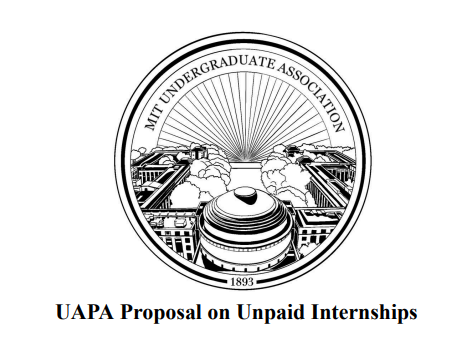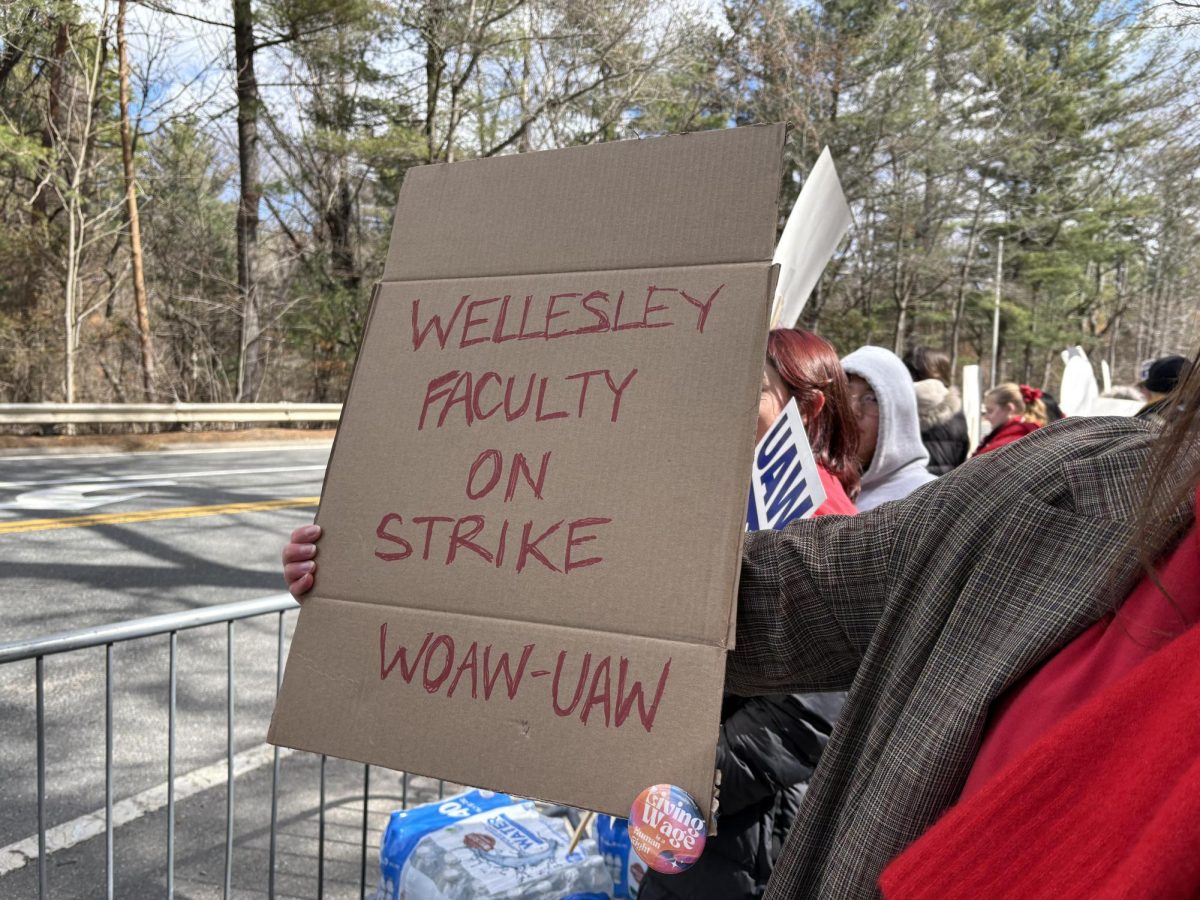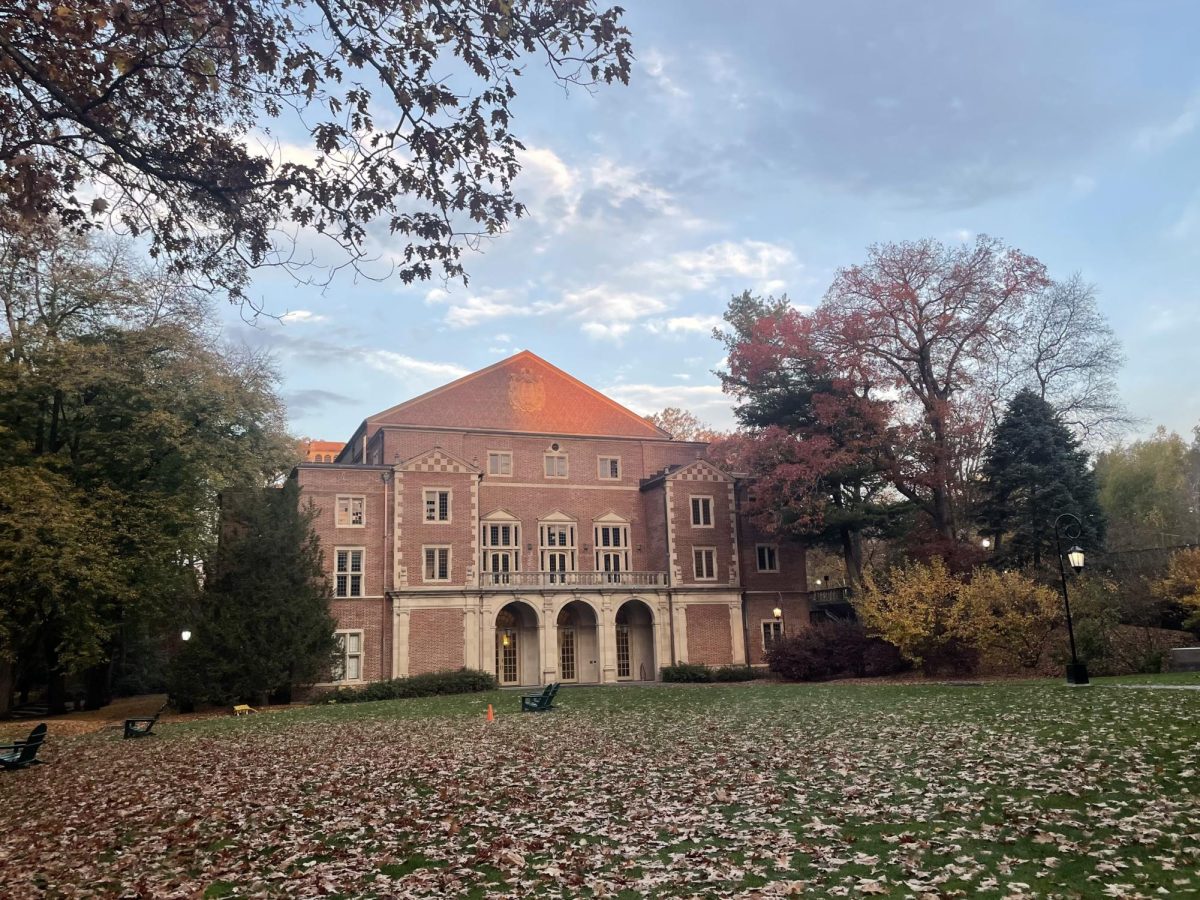Wellesley College Government passed CG Resolution No. 003 at Senate on Monday, Feb. 12, which will add CG as a signatory to the MIT Undergraduate Association Public Affairs (UAPA) Proposal on Unpaid Internships. The proposal is spearheaded by MIT student Paul Irvine ’24, chair of External Affairs for the MIT UAPA and policy director for Boston Intercollegiate Government (BIG).
MIT UAPA’s role is to work towards resolving student issues that fall outside of university administration’s purview. BIG is a coalition of colleges and universities in the greater Boston area, which works with and engages universities to advocate for larger Boston university goals.
“[W]e aim to (1) reduce the prevalence of unpaid internships (especially in the public sector) and (2) expand workplace protections for unpaid workers, to ensure students are not being subjected to exploitative or hostile work environments,” the UAPA proposal states.
The CG resolution explains two major avenues by which MIT UAPA and BIG aim to achieve their two major goals: expanding the Primary Beneficiary Test, a federal protection for unpaid interns against exploitation by their employers which currently only applies to the private sector, and implementing discrimination and harassment protections.
“Extending the Primary Beneficiary Test to paying public sector interns is essential for increasing equitable access to government work … [E]xpanding anti-discrimination and sexual harassment provisions for unpaid interns and volunteers creates a less traumatic and less hostile working environment for students at Wellesley College and our peer institutions interested in those intern or volunteer positions,” the resolution states.
CG’s Secretary-Treasurer, Margaret Huai ’26, described the process of advancing the proposal as back-and-forth communication between CG, senators, administration and students. After answering questions from the Wellesley community, CG did not have to make any edits to the proposal. On Feb. 12, Senate met quorum and could take a vote on the proposal.
“We actually had a unanimous vote,” Huai recalled.
Irvine explains that the proposal was primarily inspired by hearing stories about how his peers were being treated in unpaid public service internships.
“It’s very dependent on who your boss is, and there [are] no protections around that,” he said.
Irvine sees the lack of protections for unpaid interns as an issue that should concern policymakers and citizens alike; an issue that results in fewer passionate students going into public service.
“In my view, it’s pushing people away from public service … to me this is a much much larger issue of talent acquisition [and] talent retention in public service,” he said.
Irvine explained that discussions about the issues facing unpaid interns began in March of 2023, but that before the UAPA Proposal on Unpaid Internships could be drafted, the proposal system had to be designed to allow MIT UAPA to take a policy position.
“[MIT had] no mechanisms to support advocacy, especially externally,” Irvine explained. “We came up with the proposal system, where it goes through an internal vote, and then it’s referred to our student government legislator of the UA Council and if they give unanimous consent, then we get to publicly take that position.”
As the proposal’s working group now progresses toward the policy changes outlined in the document, the next steps come from both the legislative and executive angles.
This is not the first time protections for unpaid interns have been proposed. Massachusetts State Senator Joan Lovely sponsored and presented S.1035, a bill proposing increased protections for interns, volunteers and independent contractors from sexual harassment and discrimination.
BIG’s letter of support for S.1035 in December 2023 advocated for the expansion of the bill to include extending the Primary Beneficiary Test. However, the proposal working group did not make the deadline to expand the scope of S.1035. Irvine explained that the working group plans to keep the pressure on.
“We need to find a sponsor … to introduce a brand new bill with the things that we want in it so it can either be paired, merged, or amended in the next legislative session,” Irvine said.
Irvine also notes that the expansion of the Primary Beneficiary Test is also difficult because of its relative novelty.
“You’re asking a policymaker to do something that’s never been done before.”
Even with the relatively slow pace of legislative change, the working group acknowledged that some parts of the proposal cannot be done unilaterally by the executive branch. Sexual harassment protections cannot be passed without Congressional approval, and any state funding for interns will have to be approved by the legislature.
“Every dollar that’s paid in wages for interns is a dollar away from the T (MBTA transportation system) or public safety, or community health – the best that we can do is say: ‘here’s our interest, here’s why we think it’s important, here’s how it will benefit the people of Massachusetts’ … and we’re going to make that ask and see where it goes,” he said.
On the executive side, there have been changes instituted in recent months.
“The Governor’s office did not pay their interns three months ago … and the Governor’s office does pay their interns today. There’s appetite and there’s recognition … I am excited on the executive side because that’s recognized – that’s there,” Irvine said.
Looking forward, Huai said that she will continue to keep the Wellesley community updated. She is also actively involved in the proposal, working often on outreach to other schools in the Boston area and in her home state of California.
Irvine emphasized that the process is still in its early stages.
“We’re still starting – infrastructure building is a tough ask,” he said.
Irvine’s long-term vision is for the UAPA Proposal on Unpaid Internships to serve as a first step for students to be actively involved in the policymaking processes that concern their rights and interests.
“I want students to recognize that we are participants in a political system – politics affects us, and we are a group that’s not being represented in the political system … The only way we can advance our own interests is by doing it ourselves,” he said. “Ultimately, there needs to be sustainable systems to advocate, and that’s the vision I have here.”




